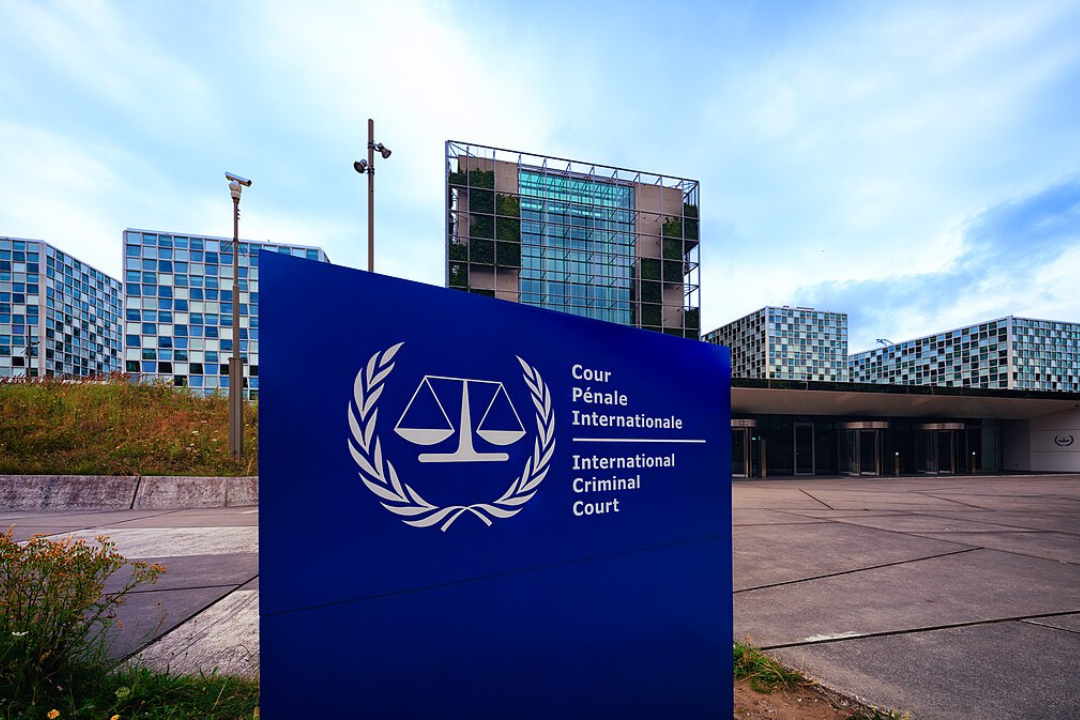The Conundrum of Initial Appearance
Analysing the Procedure and Requirements for in Absentia Hearings at the International Criminal Court, Its Scope and Limitations, in Lieu of the Appeals Judgment in Prosecutor v. Joseph Kony
On 3 June 2025, the Appeals Chamber (AC) of the International Criminal Court (the ‘ICC’) pronounced its judgement on the confirmation of charges in absentia in the case of Joseph Kony. Being the only case ever to proceed in such a manner, this comes as a landmark judgement in defining the procedural requirements for an in absentia confirmation of charges, as well as the scope of its applicability. This article serves to analyse the judgement itself and compare it to other situations in order to examine its applicability.
The Pre-Trial Chamber’s Decision
On 29 October 2024, the Pre-Trial Chamber III (the ‘PTC’) passed its decision on the ‘criteria for holding confirmation of charges proceedings in absentia’.
The Defence contended that Article 61(2)(b) of the Rome Statute (the ‘Statute’), which allowed for the confirmation of charges in absentia if the accused had ‘fled or cannot be found’, requires an initial appearance by the accused before the court. It claimed that a lack of any requirement regarding an initial appearance goes against the ‘ordinary meaning’ of the Statute, especially when read in conjunction with Article 60(1) of the Statute, which requires that the accused be informed of the crimes that have been alleged as well as their rights upon surrender or arrest, and Rule 122 of the ICC’s Rules of Procedure, which grants the accused the right to make objections regarding the nature of the proceedings. According to the Defence team, nothing in Article 61(2)(b) could be construed as an exception to these texts.
The Defence also referred to two proposals presented during the proceedings of the Rome Conference, one in 1996 and another in 1998, both requiring an in absentia hearing subject to arrest or surrender, along with the travaux préparatoires and other supplementary materials.
The PTC, while rejecting the Defence’s plea to dismiss the prosecution’s request for an in absentia hearing, held that no initial appearance before the court is required for Article 61(2)(b) to be applicable. Interpreting Article 61(2)(b) in a broad manner, it held that ‘fled’ meant an accused who escaped custody, therefore implying an initial appearance before the court, while ‘cannot be found’ refers to situations where the accused never appeared before the court.
The court emphasised the use of the disjunctive word ‘or’, denoting that ‘fled’ and ‘cannot be found’ are meant to be interpreted differently and thus ‘fled’ refers to when an accused has absconded, while ‘cannot be found’ refers to when an accused has never been accessible.
The PTC also referred to Article 32 of the Vienna Convention of the Law of Treaties (VCLT), holding that the Travaux Préparatoires is but a supplementary mode of interpretation to be used “if the general rule of interpretation contained in article 31 of the VCLT either leaves the meaning ambiguous or obscure, or leads to a result which is manifestly absurd or unreasonable.”
Since the original meaning of Article 61(2)(b) covered the two possible situations where a confirmation of charges in absentia could take place, based on the usage of the disjunction ‘or’, no supplementary form of interpretation was needed. The PTC therefore held that there was no requirement of initial appearance under Article 61(2)(b).
The Judgement of the Appeals Chamber
The AC, in its judgement dismissing the Defence’s appeal of the PTC’s decision, provided three key findings.
Neither ‘Fled’ nor ‘Cannot Be Found’ Require Prior Appearance; The Word, ‘or’ Can Be Interpreted to Mean Similar Situations as Well
The AC held that the PTC erred in finding that the terms ‘fled’ and ‘cannot be found’ refer to distinct situations by referring to Article 31 of the VCLT, which states that the ordinary meaning of the text, in light of its object and purpose, be given precedence. The AC distinguished between strong disjunctions, wherein ‘or’ is used to refer to two distinct situations, and weak or inclusive disjunctions, wherein ‘or’ is used to refer to situations not so dissimilar to each other. Based on such injunctions, the court held that there is no such distinction between the terms ‘fled’ and ‘cannot be found’ under Article 61(2)(b), and neither require initial appearance.
The Object and the Purpose of the Statute Require in Absentia Confirmation of Charges under Article 61(2)(B)
Secondly, it dismissed the Defence’s argument that the reasons for non-availability should be considered before approving a request for confirmation of charges in absentia. The Defence claimed that the PTC erred in its interpretation of the terms ‘fled’ and ‘cannot be found’. It was submitted that the term ‘fled’ should be construed as an act of wilful refusal to submit to the court, while ‘cannot be found’ should be viewed as non-appearance due to unforeseen reasons. The Defence argued that the PTC’s interpretation of Article 61(2)(b) was isolated in nature and did not take into account Article 60(1), thus being contrary to the principles of interpretation enshrined in Article 31 of the VCLT that require the original meaning of the text to be read in conjunction with the Statute as a whole and in light of its object and purpose.
The AC held that considering the reason for non-appearance is not required to satisfy the conditions under Article 61(2)(b) of the Statute, with the act of non-appearance in itself being a valid reason to constitute a confirmation of charges in absentia. In construing so, the AC held that the abovementioned interpretation is not in isolation, for Article 61(2)(b) is the sole exception to the principle enshrined in Article 60(1). The phrase ‘subject to’ in Article 61(1) expressly states that Article 61(2) shall be an exception to situations which require the presence of the accused, including Article 60(1). The AC found it necessary to reject the kind of interpretation provided by the Defence as it would render the exception clause “unnecessary and redundant” and the court must ensure such redundancy does not arise.
Established Procedures to Conduct in Absentia Confirmation of Charges are Present in the Rules of Procedure
The AC held that the ‘object and purpose’ of the Statute is to “put an end to impunity”. To achieve such object and purpose, it is imperative that Article 61(2)(b) does not require an initial appearance as a requirement for an in absentia confirmation of charges.
The Defence contended that there is no statutory criterion for establishing a procedure for an in absentia confirmation of charges hearing. The AC immediately dismissed the argument and held that Article 123(2) and 125(1) provide the required procedure to set up an in absentia confirmation of charges hearing.
Based on the above reasons, the AC dismissed the appeal of the Defence and, for the first time in the history of the ICC, permitted the Prosecution to move to confirmation of charges in absentia.
Conclusion
An in absentia hearing is not an alien concept in international law. In the realm of International Criminal Law, hearings in absentia took place during the Nuremberg and Tokyo trials. Hearings in absentia are also permissible under the European Convention of Human Rights, as long as the accused exercises their right to a legal representative, and under the International Covenant on Civil and Political Rights (ICCPR), if all necessary steps have been taken to inform the accused of the same. Article 61(2)(b) considers both these requirements, and in the present case, the accused had defence counsel present during all stages of the proceedings.
While trials in absentia have valid criticisms, these concerns are irrelevant in the present case, as the hearing is not a trial but rather a confirmation of charges. The accused is neither pronounced guilty nor innocent; it is simply determined whether a trial is necessary. The Trial Chamber, on the other hand, will only be able to proceed in the presence of the accused, which opens an entirely different debate, with proponents of in absentia trials criticising the ICC’s approach.
The judgment of the AC can be seen as a positive step in International Criminal Law and criminal liability, as it ensures that evading prosecution is futile; the accused will still be held accountable. It also ensures that the ICC does not fall into perpetual delays and halts, even though it inevitably will after the in absentia confirmation of charges if the accused is not presented before the court.
With this verdict, the AC finally lays down a much-needed scope on in absentia hearings at the ICC, allowing future cases that meet the threshold to be brought to The Hague.

